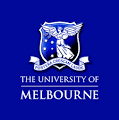Acknowledgements
Project team
The research team comprised six Lautem locals who were all native Fataluku speakers. The lead researcher Justino Valentim, recognized as a national hero of the resistance and cultural leader of Lospalos, had been involved in researching and recording Fataluku culture and advocating for its preservation since Timor’s independence in 1999. He was the founder of the Council for Fataluku Culture and was instrumental in the development of Fataluku as a written language in collaboration with UNESCO and the University of Melbourne.
Other team members, Rico Caetano, Ildefonso da Silva and Maria Madalena dos Santos used existing skills and new capacity deveoped through the project in camera use, video editing, photography and communication. Thomas Lopes undertook translations from Fataluku to Tetun and English and Nelinha Pereira provided adminstration support.
The research team were provided with training and supervision by MHI’s Directors, Australian cultural anthropologist Holly Schauble and researcher Dr. Kim Dunphy. This included qualitative research design and research techniques, including identification of intangible cultural heritage elements, and project planning and management. Day to day support was provided by MHI’s Project Manager, Australian volunteer Lucia Pichler, and volunteer Program Officer Amy Stevenson. Research assistance was provided by Tessa Dunphy Toumbourou. Timor's first female film-maker and editor, Bety do Reis, provided training in film-making and editing.
Project partners
The project was initiated by Many Hands International and undertaken in partnership with the State Secretariat of Tourism, Art and Culture (Government of Timor-Leste) and supported by the Lautem Municipality; Department of Education, Lautem District and community organisation, the Council for Fataluku Culture. UNESCO Jakarta contributed technical advice and training for staff in the management and recording of ICH (Intangible Cultural Heritage).
Contributors
The project was successful because of the generosity of Fataluku communities who shared their cultural heritage for the benefit of current and future generations. MHI is grateful to all those FatalukU people who contributed.
Supporters
Many Hands International acknowledge with grateful thanks support for the data collection phase of this project from the US Ambassador’s Fund for Cultural Preservation 2012 – US Embassy, Dili, Timor-Leste.
Deakin University, Melbourne, Australia supported the analysis and documentation phase and University of Melbourne, the dissemination phase through Director Kim Dunphy's Post-Doctoral Mackenzie Fellowship.
Can't find what you're looking for? Try viewing the site map.




